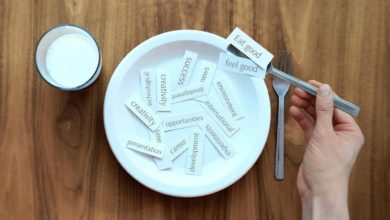13 Foods That Cause Bloating and Foods That Can Be Replaced

Bloating is the swelling or enlargement of the abdomen after eating. People often confuse swelling with edema, which is an increased collection of fluid in the body. Bloating is often caused by gas or other digestive problems. Bloating is very common. Approximately 16-30% of people say they experience this very often. Although bloating can be a symptom of a serious medical condition, it is usually caused by a food or substance in the diet. Here are 13 foods that can cause bloating and suggestions on what to eat instead.
1-Bean
Beans are a type of legume. It is high in healthy protein and carbohydrates. Beans are also rich in fiber, as well as a variety of vitamins and minerals. Most beans contain alpha galactosides (a type of sugar) called FODMAPs. FODMAPs are known as short chain carbohydrates that are fermented by bacteria in the colon. The byproduct of the fermentation process is gas. FODMAPs actually provide energy to beneficial bacteria and do not cause a problem in healthy people.
In people with irritable bowel syndrome, some gas occurs during the fermentation process. These gases can cause bloating, cramping, and diarrhea. Soaking the beans can reduce the amount of FODMAPs they contain. Changing the soaking water several times can also help. Eating a small amount each day can also help to reduce the discomfort that can be caused by eating beans. In one study, most people who ate beans every day for 8 to 12 weeks had a reduction in digestive symptoms.
What to eat instead of beans: Some beans are easier for the digestive system. Kidney beans and black beans can be more digestible, especially after soaking. Beans can also replace it with grain, meat, or quinoa.
2-Lentil
Lentils are also among legumes. In lentils, as in other legumes, protein, fiber, healthy carbohydrates, manganese, copper and iron are high. Due to their high fiber content, they can cause swelling in sensitive people. This is especially true for those who are not used to consuming too much pulp. FODMAP sugars also found in lentils contribute to gas production and bloating. Soaking lentils before eating or cooking can improve their digestion.
What to eat instead of lentils: Light-colored lentils are generally lower in fiber than darker ones, so they may cause less bloating.
3- Broccoli and Other Cruciferous Vegetables
Cruciferous vegetables include cabbage, cauliflower, broccoli, Brussels sprouts. These are very healthy vegetables that contain essential nutrients such as vitamin C, fiber, vitamin K, potassium, and iron. Apart from these, FODMAPs can also cause bloating in some people because they contain them. Cooking cruciferous vegetables can ease their digestion.
What to eat instead: Alternatively, eat other healthy vegetables such as spinach, squash, cucumber, lettuce, sweet potatoes, asparagus, carrots, celery, which are equally rich in vitamins and minerals but do not cause bloating.
4-Onion
Onion is an underground onion vegetable that has a strong flavor. It is rarely eaten whole but is also popular in cooked meals, side dishes, and salads. Although usually eaten in small amounts, onions contain fructans, which are soluble fibers that can cause bloating. Fructans are also found in wheat, leeks, garlic and many other foods. Some people may be allergic to garlic or onions, which further increases the likelihood of bloating, belching and gas after consuming them. Some people are sensitive or intolerant to other compounds in onions, especially raw onions. For this reason, when onions are consumed, bloating and other digestive disorders are experienced. If it is consumed by cooking rather than raw, the negative effects of onions may be reduced and digestion will be easier.
What to eat instead of onions: Use fresh herbs or spices as an alternative to onions.
5- Garlic
Garlic is an incredibly popular herb that is used as a sweetener and a health remedy. Garlic also contains fructans, so it can cause bloating like onions do. Other compounds in garlic can also cause allergies or intolerance. Cooking garlic can reduce such effects.
What to eat instead of garlic: Use of other herbs and spices such as thyme, parsley, chives or basil in place of garlic in your meals can be tried.
6- Wheat
Wheat has been a controversial food for the past few years, mainly because it contains a protein called gluten. Although it causes controversy, it is still widely consumed. Flour-made products such as most breads, pastas, pizzas, biscuits, waffles, cakes and pancakes are also made from wheat. Wheat causes major problems such as gas, bloating, stomach ache and diarrhea in the digestive system in those with gluten sensitivity and celiac disease. Wheat is also the source of FODMAPs that can cause digestive problems in many people.
What to eat instead of wheat: There are many gluten-free alternatives to wheat such as pure oats, quinoa, buckwheat, coconut flour, and almond flour.
7- Barley
Barley is one of the most commonly consumed grains. It is nutritious because it is rich in vitamins and fiber, contains minerals such as selenium, manganese, molybdenum. Because it is rich in fiber, whole grain barley can cause bloating in people who are not used to consuming too much fiber. Barley also contains gluten. This can cause problems for people with gluten intolerance.
What to eat instead of barley: Processed barley varieties such as Pearl barley or Frank barley can be better tolerated. Barley can also be replaced with grains like oats, brown rice, or pseudo-grains (cereal counterparts) like quinoa or buckwheat. The nutritional profile of false grains is superior to traditional cereal options as they contain more protein and dietary fiber.
8- Rye
Rye is a grain related to wheat. It is very nutritious and a good source of pulp, B vitamins, phosphorus, manganese and copper. However, rye also contains gluten, a protein that many people are sensitive or intolerant to. Rye may be the primary cause of bloating in sensitive people due to its gluten and high fiber content.
What to eat instead of rye: Grains such as oats, brown rice, buckwheat or quinoa, or pseudo-grains can replace rye.
9- Carbonated Drinks
Sodas are another very common cause of bloating. These drinks contain high amounts of carbon dioxide gas that creates bubbles. Carbon dioxide gas can cause bloating in the digestive system. Excessive consumption of these types of beverages can also cause different health problems. Drinking one of these drinks causes the ingestion of large amounts of this gas. Carbonated beverages can also significantly contribute to the amount of air swallowed. Some of the gas gets trapped in the digestive tract, which can cause uncomfortable bloating, burping, and even cramping.
What to drink instead of soda: Plain water is always the best drink. Other healthy alternatives include coffee, tea, especially green tea, plain water, and fruit-flavored water.
10- Beer
Alcohol is an inflammatory substance and its consumption can cause inflammation of the gastrointestinal lining. Beer is particularly likely to irritate the intestines, as it is a carbonated beverage.
Probably everyone has heard of the term “beer belly” used before. This refers not only to increased belly fat, but also to the bloating caused by drinking beer. It is a carbonated beverage made from fermentable carbohydrate sources such as beer, barley, corn, wheat and rice, and a little bit of yeast and water. Many people are sensitive to fermentable carbohydrates, which can cause gas and bloating. Cereals used to make beer often also contain gluten.
What to drink instead of beer: Water is always the best drink, tea can also be drunk, but if alcoholic alternatives are sought, red wine, white wine or alcoholic beverages may cause less bloating.
11-Dairy Products
Milk and dairy products are very nutritious and an excellent source of calcium and protein. There are many dairy products such as milk, cheese, cream cheese, cheese, butter and yoghurt. Approximately 75% of the world’s population cannot break down the lactose found in most dairy products, including milk, cheese and ice cream. People who do not produce enough lactase enzymes have difficulty digesting lactose, known as lactose intolerance. If people are lactose intolerant, consuming milk can cause bloating, gas, abdominal cramps, and diarrhea.
What to eat instead of dairy products: People with lactose intolerance can sometimes eat some lactose-containing fermented dairy products such as cream, butter, cheese or yogurt. Lactose-free dairy products are also available. Other alternatives to regular milk include coconut, almond milk, soy milk, rice milk, or flax milk. Also, lactose-free milks, cheeses, yogurts and ice creams can be purchased. Symptoms can also be reduced by taking a lactase tablet before eating lactose foods.
12-Apple
Apple is one of the popular fruits in the world. It is rich in vitamin C, antioxidants and fiber. Although it is a healthy fruit, it can cause bloating and other digestive problems in some people. The culprits are fructose, a fruit sugar that most people have trouble digesting, and the fiber it contains. Fructose and fiber can ferment in the large intestine, causing gas and bloating. Cooked apples may be easier to digest than fresh ones.
What to eat instead of apples: Other fruits such as bananas, grapes, melons, blueberries, blackberries, grapefruit, tangerines, oranges, or strawberries are less likely to cause bloating and can be consumed more comfortably.
13- Sugar Alcohols
Sugar alcohols are used to replace sugar in chewing gum and in foods that do not add sugar. Common types include mannitol, sorbitol, and xylitol. Sugar alcohols are in the FODMAP group. Since they reach the large intestine where the bacteria are fed unchanged, they tend to cause various digestive problems. Excessive consumption of sugar alcohols can cause problems such as diarrhea, gas, and bloating.
What to eat instead of sugar alcohols: Erythritol is also a sugar alcohol, but it is easier to digest than those mentioned above. Stevia is also a healthy alternative to sugar and sugar alcohols.
Other Ways to Reduce Bloating
While bloating is a very common problem, it can be caused by a specific food or drink in the diet rather than a serious medical problem. Usually it can be fixed with relatively simple changes. If there are persistent digestive problems, a low-FODMAP diet may be considered. This diet can be incredibly effective not only for bloating but also for other digestive issues. If there are problems with bloating, a nutrient on this list is likely to be the culprit. People’s bodies may react differently, a food that causes bloating may not affect everyone the same. For this reason, it is important to avoid foods that only affect people or are the most overreacted, rather than giving up any food that can cause bloating. If stopping certain foods does not prevent bloating, a dietician or doctor should be consulted. In addition, some supplements such as digestive enzymes and probiotics can be used to improve digestion and reduce bloating with doctor’s advice.





